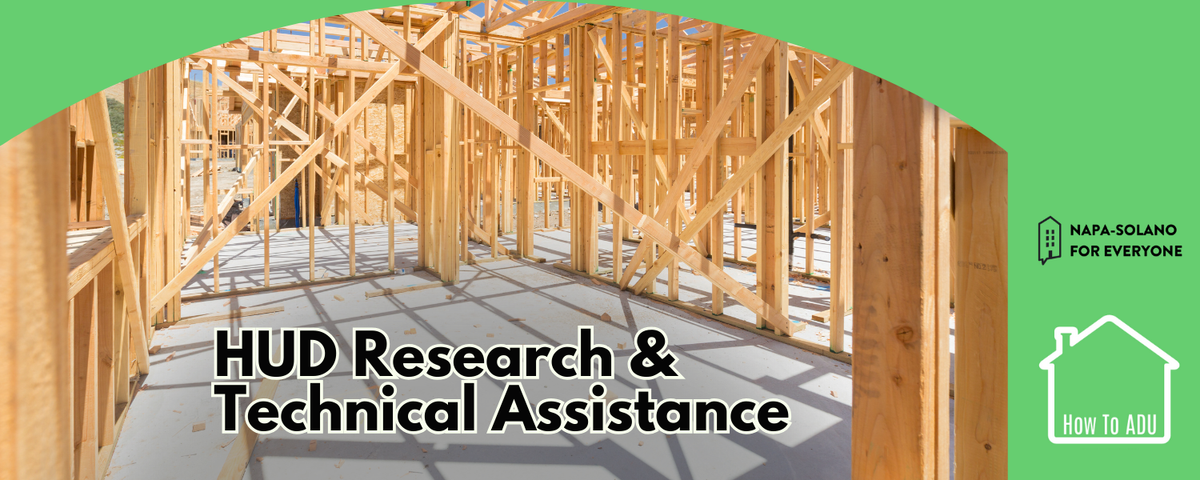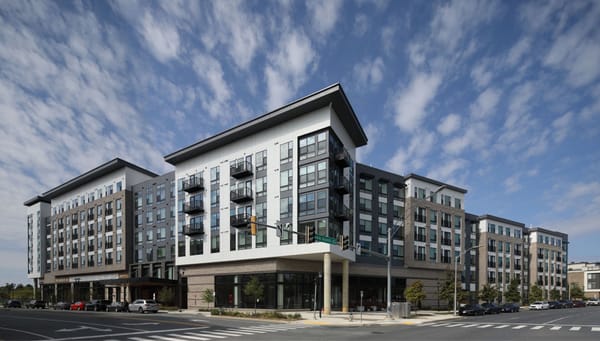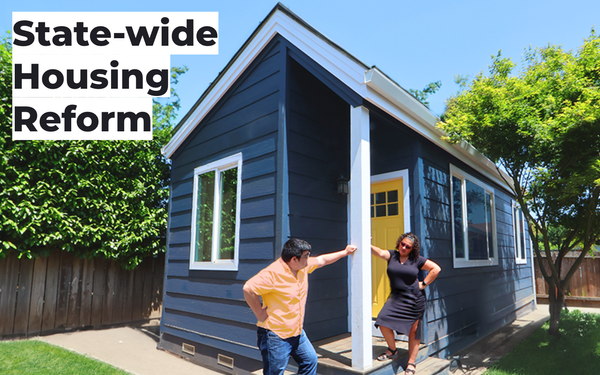Can we do national housing reform?

I moved to Washington DC from January-June 2024 to learn about housing reform at the national level, and what I'm learning is sort of wild...
This article will have my current advocacy effort summarized at the top, and I'll have more of a laundry list of all the different reform efforts at stakeholders below that.
If you want to help me get this done, you can sign this petition: https://actionnetwork.org/petitions/lets-build-more-homes/

What we should do right away
We should ask HUD to provide resources to local and state governments.
- Conduct research
- Offer technical assistance
- That's it...
Video version of this article if you're more in the mood for audio/video
Research
HUD can study what's going on around the country and bring it all together to create a guide that would be useful to any kind of town or city.
The general message will probably be something along the lines of:
- make it legal to build housing of different types
- make your zoning standards very objective and predictable
- limit the amount of case by case, subjective judgements for projects and resulting delays
Having said that, the results of the research should NOT be one size fits all.
The results should be nuanced so that there are different options for different places.
For example, there are typically large variations in which solutions would be best based on:
- Size and shape of existing lots
- Existing structures and where they sit on those lots
- Number of lots with open space in urban environments
- Environmental features / concerns
- Natural barriers (eg can't build in the swamp)
- Natural disasters (eg fire risk, earthquakes, floods, etc.)
- Existing resources / obstacles
- proximity to jobs, retail, transit, etc
- Bad environments for housing (eg we built an interstate highway through this neighborhood)
We imagine this research would conclude with a number of different approaches that allow to:
- allow more types of housing
- relax dimensional requirements
- adopt more predictable zoning, processing and permitting (aka allow as of right development)
- go beyond zoning to building code, impact fees, and environmental reviews
- have different solutions for different local actors
We can also imagine specific recommendations for states based on best practices
- Offer financials incentives and disincentives to jurisdictions
- Offer alternatives to local planning process under certain conditions
- and a lot of other ideas
But this last part is hard because the 50 states start from widely different baselines. Each state has its own laws, institutional capacity, history, politics, and housing market conditions.
The results of this research would not mandate anything or usurp local control.
The goal of this specific advocacy is to empower a coalition of the willing.
There are existing critiques of centralized national action from both the left and the right. Whether we believe these criticisms or not, we can create a more powerful coalition by avoiding HUD mandates at this time.
Technical Assistance
Once we have conducted the research at the national level, cities and states have to do a lot of work to adopt these best practices.
There are an estimated 40,000 general-purpose governments (counties, cities, towns, villages and boroughs) in charge of land use planning in the USA (Scheutz 2022) and 85% of our cities and towns have fewer than 10,000 residents.
In short, the thousands of local governments that would be happy to adopt best practices often have a planning staff of one or two people who are not particularly experienced in sweeping zoning reform.
So it would be great if HUD had a team of specialists who could look at a local zoning code and help the city integrate best practices without breaking their existing ordinances.
Next steps for advocacy

Please consider signing my petition above as a first step to express your support.
This next part is going to be a bit wonky.
Why is this the specific advocacy route?
My goal here is to pick a policy that will meet several criteria:
- High impact - we need to create a lot of homes
- Popular - we need to build a broad coalition to succeed
- Possible - we need it to work
- Grounded in reality - we need to be grounded in data and empirical results
- Measurable - we need to be able to prove it was successful or not
We also generally want to avoid or overcome a few challenges of national reform:
- Avoid partisan politics that kill reform
- National reform tends to be one size fits all
- National reform moves slowly
HUD is actually open to this
HUD is largely receptive to this idea from what I can tell.
And after talking to a wide array of housing advocates with very different perspectives, I'd say this is one of the few policies I've seen nearly universal agreement on.
We could actually get this implemented - and it could start with something concrete and achievable and grow from there.
This particular policy could create a small library of resources that HUD expands in the future. Similarly, HUD could offer a finite amount of technical assistance in 2024 and 2025, and request funding to expand that in the future if that is possible.
This would significantly accelerate the adoption of best practices in local zoning reform around the country.
But we need to push for it
Perhaps my biggest surprise landing in DC this January is that there isn't a hugely centralized national reform effort.
There's a large coalition of a lot of different types of organizations that all broadly agree on a whole range of policies.
But my sense is that they need to be galvanized into action or we won't actually see this happen any time soon.
Who do we push?
Even if HUD wants to do this, we still probably need to advocate for it.
Obviously we need to tell HUD we support this.
But we also need to tell people who sometimes boss them around (maybe the Senate Committee on Banking, Housing and Urban Affairs)
And we also want to work with possible partners and intermediaries who would help them implement this.
For example:
- AARP - American Association of Retired Persons
- APA - American Planner's Association
- NCSL - National Conference of State Legislatures
- NLC - National League of Cities
- NACo - National Association of Counties
What would this look like?
For a decent illustration of what this could look like, check out the AARP models for ADU rules.
They created two versions of a "Model State ADU Act" (Optimal and Minimal).
They also crafted a "Model Local ADU Ordinance" for cities that want to progress beyond what their state requires.
Then check out Mercatus' analysis of what makes ADU rules work in some states but not others.
I imagine the HUD product would offer several best practices (not just limited to ADUs!) with these kinds of models for local ordinances, state legislation, and the successes and trials that have been experienced in different areas based on their legislative efforts.
This could look like a more detailed version of States reform regulations to support more housing production, an article from the Federal Reserve Bank of Minneapolis.
One could also imagine regional case studies like the American Enterprise Institute's Seattle Case Study (although a bit less critical in its language!!!)
What other housing policies are there to support?
This section is a work in progress to acknowledge some of the policy paths that I'm not prioritizing personally at the moment.
YIMBY Act - https://upforgrowth.org/news_insights/the-yimby-act-can-be-a-catalyst-for-housing-equity/
Build More Housing Near Transit Act - https://upforgrowth.org/news_insights/the-build-more-housing-near-transit-act-can-create-housing-affordability-near-transit/
social housing - https://ryanohousing.ghost.io/ghost/#/editor/post/65fdbb1c083bc7000122e732
Green New Deal for Housing - https://www.politico.com/news/2024/03/21/aoc-sanders-unveil-green-new-deal-for-housing-00148263 (includes amendment/repeal of the Faircloth Amendment)
More LIHTC funding - https://www.housingfinance.com/news/lihtc-changes-included-in-biden-budget-proposal
Give money to people - Don't really have a policy plank for this but there's a lot of credible efforts around UBI or direct payments instead of or in addition to housing vouchers
Giving money to organizations to incentivize zoning reform - https://upforgrowth.org/news_insights/up-for-growth-action-applauds-passage-of-key-housing-provisions-in-2023-omnibus-bill/
Tying CDBG funding to housing development
The list of stakeholders
Growing list of stakeholders that I'm meeting with and trying to bring together

https://www.aei.org/centers/housing-center/





https://www.cato.org/publications/housing-affordability



Work Cited and Further Reading
Schuetz, Jenny. Fixer-Upper: How to Repair America’s Broken Housing Systems. Brookings Institution Press, 2022.
US Census Bureau. "2018 American Community Survey 1-Year Estimates." Table B01003. Excludes unincorporated parts of counties.












